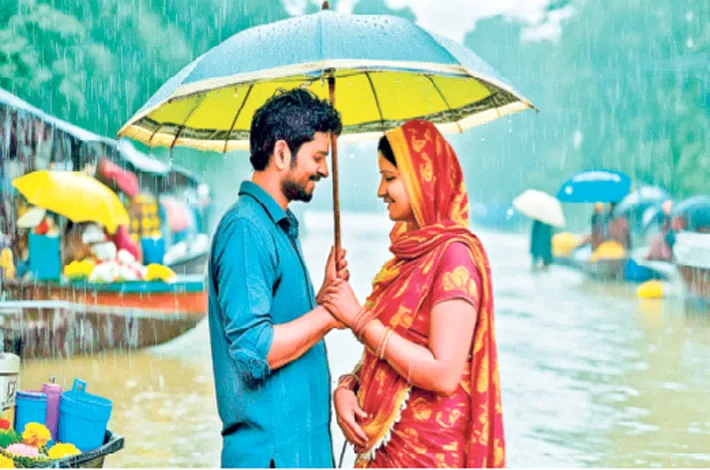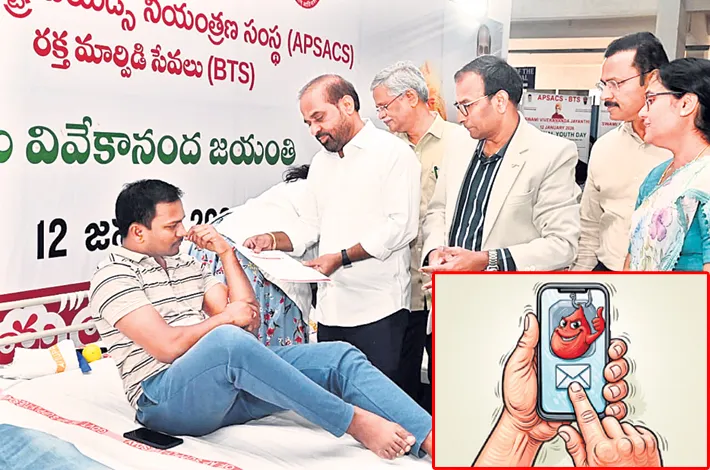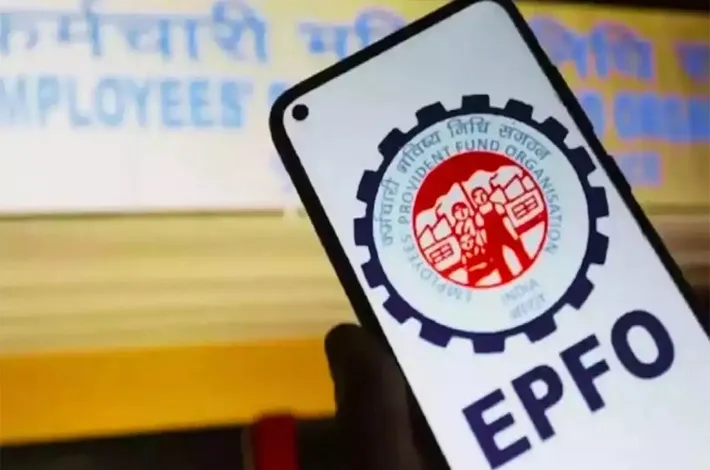A Thirst for Love
25-05-2025 12:00:00 AM

One rainy evening, as they sat under a tarp at the tea stall, Gulabo handed Vijay a crumpled envelope. Inside was money—her savings from weeks of selling flowers. “Publish your poems,” she urged. “Let the world hear you.” Vijay protested, but her resolve was unshakable. Touched by her faith, he used the money to print a small collection of his work, titled Pyaasa—The Thirsty One
In the bustling lanes of 1950s Kolkata, where the Hooghly River shimmered under the twilight and tram bells clanged through the humid air, Vijay lived a life of quiet yearning. A poet by heart, his tattered notebook brimmed with verses that spoke of love, loss, and the ache of a world that seemed to care little for beauty. His threadbare kurta and worn-out sandals marked him as an outsider in a city chasing wealth and status, yet his eyes held a spark that refused to dim.
Vijay’s days were spent wandering the streets, reciting his poems to anyone who would listen—mostly rickshaw pullers and chaiwallahs who nodded politely but rarely understood. His nights were spent in a cramped attic room, where the rain leaked through the roof, mirroring the tears he never shed. His family, once supportive, had long given up on him. His brothers mocked his dreams, urging him to take a clerk’s job at a local firm. “Poetry doesn’t fill stomachs, Vijay,” they’d say. But Vijay’s heart was tethered to his words, and in them, he sought salvation.
One evening, as the monsoon clouds gathered, Vijay stood under a flickering streetlamp outside a bustling bookstore, reading his latest poem to a small crowd. His voice, soft yet piercing, wove images of a lover’s longing, of stars weeping for the earth. Most passersby hurried past, but one figure lingered—a young woman in a simple cotton sari, her eyes wide with wonder. Her name was Gulabo, a street vendor who sold flowers by day and sought solace in the city’s shadows by night. She was no stranger to hardship; her own life was a tapestry of survival, woven with the threads of rejection and resilience.
Gulabo approached Vijay after the crowd dispersed, her hands clutching a small basket of wilted jasmines. “Your words,” she said hesitantly, “they feel like they’re mine, like you’ve seen my heart.” Vijay, unused to such sincerity, blushed and mumbled a thank you.
Over the next few weeks, their paths crossed often—by the riverbank, under the banyan tree, at the tea stall where the owner let Vijay sit for hours with a single cup. Gulabo would listen to his poetry, her eyes tracing the lines of his face as if memorizing a poem of her own. In her presence, Vijay felt seen, not as a failed dreamer but as a man whose words could move a soul.
Their bond deepened slowly, like a river carving its way through stone. Gulabo shared her own story—of a family lost to poverty, of nights spent selling flowers to men who saw her as nothing more than a transaction. Vijay, in turn, spoke of his college days, when he loved a woman named Meena, a bright, ambitious student who chose a wealthy suitor over him. The rejection had fueled his poetry, but it also left a wound that refused to heal. Gulabo, with her quiet strength, began to stitch that wound shut, not with grand gestures but with her unwavering belief in him.
One rainy evening, as they sat under a tarp at the tea stall, Gulabo handed Vijay a crumpled envelope. Inside was money—her savings from weeks of selling flowers. “Publish your poems,” she urged. “Let the world hear you.” Vijay protested, but her resolve was unshakable. Touched by her faith, he used the money to print a small collection of his work, titled Pyaasa—The Thirsty One. He dedicated it to her, though he never told her, fearing it might burden her already heavy heart.
The book, however, found no takers. Bookstores rejected it, and Vijay’s brothers laughed at his “folly.” Disheartened, he retreated into himself, avoiding even Gulabo. She searched for him, her heart heavy with worry, until one day she found him by the river, his notebook abandoned on the bank. “Why do you run from me?” she asked, her voice trembling. Vijay confessed his shame, his fear that he was nothing but a failure. Gulabo took his hand, her touch warm against his cold fingers. “Your poems are not for them, Vijay. They’re for those who feel the world’s weight, like us. They’re enough.”
Her words rekindled something in him. He began writing again, pouring his love for her into every line. But fate, ever cruel, had other plans. Meena, now a wealthy man’s wife, reentered his life. She had found a copy of Pyaasa and, moved by its raw beauty, sought him out. She offered to fund a grand publication, promising fame and recognition. Vijay, torn between his past and present, felt the old wound reopen. Meena’s world was one of glamour, one that could validate his art. Yet, as he looked into her eyes, he saw only ambition, not love.
The choice was clear, though it broke his heart. He declined Meena’s offer and returned to Gulabo, who had waited patiently, her faith unshaken. Under the same streetlamp where they first met, Vijay read her a new poem, one that spoke of a love that needed no applause, only two hearts beating as one. Gulabo smiled, tears glistening in her eyes, and for the first time, Vijay felt his thirst quenched—not for fame, but for a love that saw him as he was.
As the monsoon rain fell around them, they stood together, two souls against the world, their love a poem no one else needed to read.








